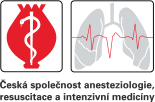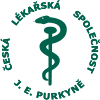Anest. intenziv. Med. 2023;34(5):208-212 | DOI: 10.36290/aim.2023.056
Year 2023 in review - Critical care nephrologyReview Article
- 1 Jednotka intenzivní péče, I. interní klinika, Lékařská fakulta v Plzni, Univerzita Karlova
- 2 Jednotka intenzivní péče, I. interní klinika, Fakultní nemocnice v Plzni
- 3 Biomedicínské centrum, Lékařská fakulta v Plzni, Univerzita Karlova
- 4 Klinika anesteziologie, resuscitace a intenzivní medicíny, Lékařská fakulta v Plzni, Univerzita Karlova
- 5 Klinika anesteziologie, resuscitace a intenzivní medicíny, Fakultní nemocnice v Plzni
Acute kidney injury (AKI) significantly affects patient morbidity and mortality. AKI represents a very heterogeneous syndrome that continues to be a very common problem faced by emergency and intensive care physicians. The year 2023 in the field of critical care nephrology cannot be seen as a breakthrough, yet several interesting articles appeared in this field covering a wide range of topics from the diagnosis of AKI, the need to understand the different phenotypes of AKI, the pathophysiology of sepsis-associated AKI (SA-AKI), to the consensus opinion on the treatment of AKI, including the kidney support therapy and purification methods and all non-negligible risks associated with extracorporeal methods. This summary article offers a brief insight into the given topics.
Keywords: acute kidney injury, sepsis, renal replacement therapy.
Received: October 30, 2023; Accepted: November 14, 2023; Prepublished online: November 16, 2023; Published: December 20, 2023 Show citation
References
- Zarbock A, Nadim MK, Pickkers P, Gomez H, Bell S, Joannidis M, et al. Sepsis‑associated acute kidney injury: consensus report of the 28th Acute Disease Quality Initiative workgroup. Nature Rev Nephrol. 2023;19(6)401-417.
 Go to original source...
Go to original source...  Go to PubMed...
Go to PubMed... - Singer M, Deutschman CS, Seymour CW, Shankar‑Hari M, Annane D, Bauer M, et al. The Third International Consensus definitions of sepsis and septic shock (Sepsis-3). JAMA. 2016;315(8)801-810.
- Kellum J, Lameire N. Diagnosis, evaluation, and management of acute kidney injury: A KDIGO Summary (Part 1). Crit Care. 2013;17(1)204.
 Go to original source...
Go to original source...  Go to PubMed...
Go to PubMed... - Evans L, Rhodes A, Alhazzani W, Antonelli M, Coopersmith CM, French C, et al. Intensive Care Medicine. 2021;47(11):1181-1247.
 Go to original source...
Go to original source...  Go to PubMed...
Go to PubMed... - Bhatraju PK, Zelnick LR, Herting J, Katz R, Mikacenic C, Kosamo S, et al. Identification of Acute Kidney Injury Subphenotypes with Differing Molecular Signatures and Responses to Vasopressin Therapy. Am J Respir Crit Care Med. 2019;199(7):863-872.
 Go to original source...
Go to original source...  Go to PubMed...
Go to PubMed... - Osterman M, Zarbock A, Goldstein S, Kashani K, Macedo E, Murugan R, et al. Recommendations on Acute Kidney Injury Biomarkers From the Acute Disease Quality Initiative Consenus Conference: A Consensus Statement. JAMA Netw Open. 2020;3(10):e2019209.
 Go to original source...
Go to original source...  Go to PubMed...
Go to PubMed... - Jaber S, Paugam C, Futier E, Lefrant JY, Lasocki S, Lescot T, et al. Sodium bicarbonate therapy for patients with severe metabolic acidaemia in the intensive care unit (BICAR‑ICU): a multicentre, open‑label, randomised, controlled phase 3 trial. Lancet. 2018;392(10141)31-40.
 Go to original source...
Go to original source...  Go to PubMed...
Go to PubMed... - De Vlieger D, Forni L, Schneider A. New diagnostics for AKI in critically ill patients: what to expect in the future. Intensive Care Med. 2022;48(11)1632-1634.
 Go to original source...
Go to original source...  Go to PubMed...
Go to PubMed... - Haredsht FN, Viaene L, Pottel H, De Corte W, Vens C. Predicting outcomes of acute kidney injury in critically ill patients using machine learning. Scientific Reports. 2023;13(1)9864.
 Go to original source...
Go to original source...  Go to PubMed...
Go to PubMed... - Prowle J, Forni L, Bell M, Chew MS, Edwards M, Grams ME, et al. Postoperative acute kidney injury in adult non‑cardiac surgery:joint consensus report of Acute Disease Quality Initiative and PeriOperative Quality Initiative. Nature Rev Nephrol. 2021;17(9)605-618.
 Go to original source...
Go to original source...  Go to PubMed...
Go to PubMed... - Antonucci E, Prado VE, Legrand M. Breaking Down the Evidence: Does Perioperative Hypotension Cause Kidney Injury? Nephron. 2023;7:1-6.
 Go to original source...
Go to original source...  Go to PubMed...
Go to PubMed... - Husain‑Syed F, Takeuchi T, Neyra J, Ramírez‑Guerrero G, Rosner MH, Ronco C, et al. Acute kidney injury in neurocritical care. 2023;27(1):341.
 Go to original source...
Go to original source...  Go to PubMed...
Go to PubMed... - Burgess LG, Goyal N, Jones GM, Khorchid Y, Kerro A, Chapple K, et al. Evaluation of acute kidney injury and mortality after intensive blood pressure control in patients with intracerebral hemorrhage. J Am Heart Assoc. 2018;7(8)e008439.
 Go to original source...
Go to original source...  Go to PubMed...
Go to PubMed... - Fiaccadori E, Sabatino A, Barazzoni R, Carrero JJ, Cupisti A, De Waele E, et al. ESPEN guideline on clinical nutrition in hospitalized patients with acute or chronic kidney disease. Clin Nutr. 2021;40(4):1644-68.
 Go to original source...
Go to original source...  Go to PubMed...
Go to PubMed... - McClave SA, Taylor BE, Martindale RG, Warren MM, Johnson DR, Braunschweig C, et al. Guidelines for the provision and assessment of nutrition support therapy in the adult critically Ill patient: Society of Critical Care Medicine (SCCM) and American Society for Parenteral and Enteral Nutrition (ASPEN). JPEN J Parenter Enteral Nutr. 2016;40(2):159-211.
 Go to original source...
Go to original source...  Go to PubMed...
Go to PubMed... - Heyland DK, Patel J, Compher C, Rice TW, Bear DE, Lee ZY, et al. he effect of higher protein dosing in critically ill patients with high nutritional risk (EFFORT Protein): an international, multicentre, pragmatic, registry‑based randomised trial. Lancet. 2023;401(10376):568.
 Go to original source...
Go to original source...  Go to PubMed...
Go to PubMed... - Stoppe C, Patel JJ, Zarbock A, Lee ZY, Rice TW, Mafrici B, et al. The impact of higher protein dosing on outcomes in critically ill patients with acute kidney injury: a post hoc analysis of the EFFORT protein trial. Crit Care. 2023;27(1):399.
 Go to original source...
Go to original source...  Go to PubMed...
Go to PubMed... - Zhou Z, Liu Ch, Yang Y, Wang F, Zhang L, Fu P. Anticoagulation options for continuous renal replacement therapy in critically ill patients: a systematic review and network meta‑analysis of randomized controlled trials. Crit Care. 2023;27(1)222.
 Go to original source...
Go to original source...  Go to PubMed...
Go to PubMed... - Assefi M, Leurent A, Blanchard F, Quemeneur C, Deransy R, Monsel A, et al. Impact of increasing post‑filter ionized calcium target on filter lifespan in renal replacement therapy with regional citrate anticoagulation: A before‑and‑after study. J Crit Care. 2023;78:154364.
 Go to original source...
Go to original source...  Go to PubMed...
Go to PubMed... - Abramovitz BW, Oguntuwase E, Abo‑Zed A, DeSilva R. Hypertriglyceridemia as a Cause of Continuous Renal Replacement Therapy Circuit Clotting: A Case Series. Blood Purif. 2023;52(4)352-358.
 Go to original source...
Go to original source...  Go to PubMed...
Go to PubMed... - Ronco C, Chawla L, Husain‑Syed F, Kellum J. Rationale for sequential extracorporeal therapy (SET) in sepsis. Crit Care. 2023;27(1):50.
 Go to original source...
Go to original source...  Go to PubMed...
Go to PubMed... - Becker S, Lang H, Barbosa CV, Tian Z, Melk A, Schmidt BMW. Efficacy of CytoSorb: a systematic review and meta‑analysis. Crit Care. 2023;27(1):215.
 Go to original source...
Go to original source...  Go to PubMed...
Go to PubMed... - Anazodo UC, Wong DY, Théberge J, Dacey M, Gomes J, Penny JD, et al. Hemodialysis‑Related Acute Brain Injury Demonstrated by Application of Intradialytic Magnetic Resonance Imaging and Spectroscopy. Journal Am Soc Nephrol. 2023;34(6)1090-1104.
 Go to original source...
Go to original source...  Go to PubMed...
Go to PubMed... - Raphalen JH, Soumagnac T, Blanot S, Bougouin W, Bourdiault A, Vimpere D, et al. Kidneys recovered from brain dead cardiac arrest patients resuscitated with ECPR show similar one‑year graft survival compared to other donors. Resuscitation. 2023;190:109883.
 Go to original source...
Go to original source...  Go to PubMed...
Go to PubMed...





